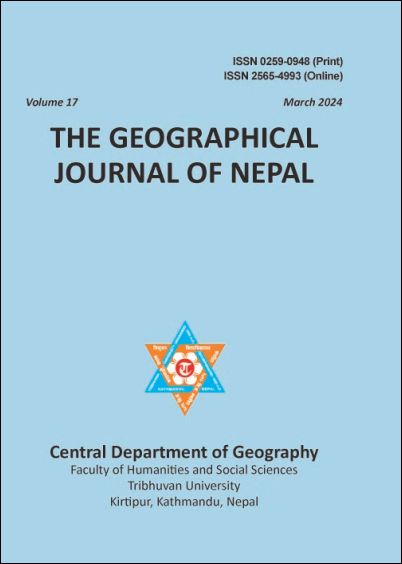Climate change policy instruments in agriculture sector: From policy to adaptation practice at local level in Nepal
DOI:
https://doi.org/10.3126/gjn.v17i01.63932Keywords:
autonomous adaptation, climate policy instruments, climate smart agriculture, smallholder farmers, implementation practicesAbstract
The current study explores synergies between climate change policy instruments and agriculture sector, reviews identified gaps and understands the translation of policy instruments at local level in five sample municipalities of three ecological regions. Understanding the adaptation actions and knowledge on implementation practices at household level is as the objective of this study. It adopted qualitative research approach using both primary (KII, FGD and household survey) and secondary data (review of existing policy documents) based on qualitative document analysis, (QDA). The study found that, policy and programs formulation at national and sub-national level in different period, are designed within the same setting from national to local level but there is divergence in programs formulation and implementation methods. Capacity and understanding of policy instruments has resulted different policy output which implicate farmers’ response to implementation practices. It is found that municipal authorities are implementing climate friendly agriculture programs without explicitly declaring climate action. The farmers are practicing autonomous adaption in agriculture with limited understanding and technical knowledge of long term climate change effect on farming. This has resulted maladaptive practices, which has contested planned climate change adaptation plan and programs. It devaluates the effort and resources spent by national and international institutions on CC policy instrument formulation and implementation. The need of field based demonstrative understanding and awareness campaigns for smallholder farmers is anticipated. It concludes that, flexibility of policy instruments through regular improvements and modification aids context-specific localization provide custom solutions. The custom solution match the traditional and existing adaptation practices assuring ownership at ground level.
Downloads
Downloads
Published
How to Cite
Issue
Section
License
Copyright (c) 2024 The Author(s)

This work is licensed under a Creative Commons Attribution 4.0 International License.
© Authors




